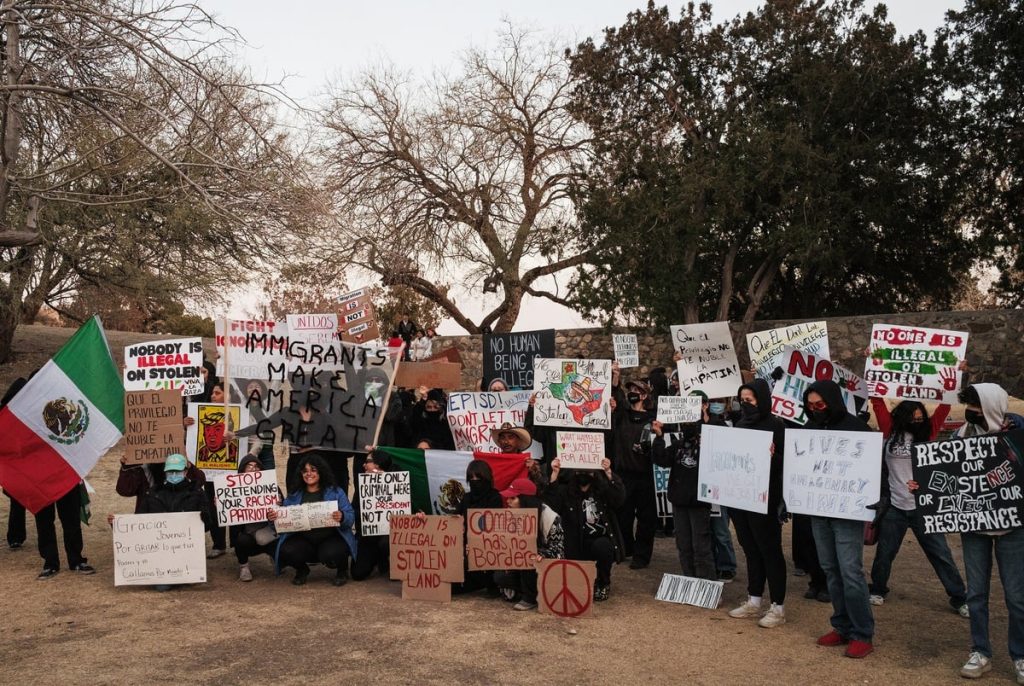The fate of more than 2,000 refugees expected in Tennessee over the coming months remains uncertain after President Donald Trump issued an order halting refugee resettlement efforts on his first day back in office.
The Tennessee Office of Refugees, which operates under Catholic Charities, collaborates with nonprofit agencies to assist refugees displaced by natural disasters and humanitarian crises in beginning a new life in the state. Between September 2024 and September 2025, the office had planned to welcome 2,385 newly arriving refugees, according to Rick Mussachio, a spokesperson for the Diocese of Nashville.
Refugees account for only a small fraction of legal immigrants admitted into the U.S. and undergo extensive federal vetting before they are approved for resettlement. However, Trump’s recent executive order has put a halt to their transport and support services.
Federal Freeze on Refugee Support Services
In addition to stopping arrivals, a January 24 directive was sent to resettlement agencies nationwide, instructing them to cease “reception and placement” services immediately. These temporary services provide newly arrived refugees with a small stipend—approximately $1,300 per month—for their first three months to cover basic necessities. The program also funds staff support to help refugees adjust to life in the U.S.
As a result, more than 140 refugees who arrived in Tennessee since September are now left in limbo, facing a lack of financial support and services. According to data provided by the Tennessee Office of Refugees, these individuals originate from countries such as Afghanistan, Iraq, the Democratic Republic of the Congo, Cuba, Haiti, Burma, Sudan, Venezuela, Guatemala, and Nicaragua.
“It’s had a huge impact,” Mussachio stated. “People with travel documents were stopped wherever they were. And recent arrivals need the support through this program. It’s a vital stepping stone to building roots and establishing life in communities.”
Catholic Charities has some limited emergency reserves to provide temporary aid, but a prolonged federal funding freeze threatens the sustainability of ongoing refugee services. In response, the organization has issued an urgent call for volunteers to help fill gaps left by the halted federal support.
Layoffs and Financial Uncertainty for Refugee Agencies
The abrupt funding cutoff has led to layoffs among staff working in refugee resettlement. On Friday, Catholic Charities was forced to lay off 11 employees from its refugee programs, and the jobs of 60 more are at risk if the halt continues, Mussachio warned.
At the Nashville International Center for Empowerment (NICE), preparations had been underway for at least 64 refugee arrivals in February. However, all of these individuals’ flights have been canceled. Many had family members in Tennessee waiting for their arrival after years of separation.
“The people we resettle are oftentimes coming from dangerous or perilous circumstances,” said Max Rykov, NICE’s director of development and communications. “A lot of people in Nashville have been waiting for years for their family members to arrive. These cancellations are heartbreaking.”
Nashville has historically been a key hub for refugee resettlement in the United States. Various agencies have helped establish vibrant communities of Kurdish, Vietnamese, Somali, and other refugee populations over the years. These agencies also assist new arrivals in settling in cities such as Memphis, Chattanooga, and Knoxville.
Uncertainty Surrounds Future of Refugee Resettlement in Tennessee
Dan Curran, a spokesperson for Inspiritus, a Nashville-based resettlement agency, revealed that the organization had been expecting about 100 refugees in February. “What will ultimately happen to them is unknown,” he said.
Refugees make up a small segment of the overall legal immigration population in the U.S. The vetting process for these individuals typically takes up to two years before they are allowed to enter the country.
Despite the uncertainty, some resettlement agencies remain hopeful. Marina Peshterianu, associate director of Bridge Refugee Services in Chattanooga, emphasized that local churches and volunteers are stepping in to provide support wherever possible.
“I don’t want to plant fear or panic right now,” she said. “I think we all hope that a reasonable solution is there. We’re just waiting for it to come.”
No Clear Timeline for Resuming Refugee Arrivals
The Trump administration has not provided any definitive timeline for when the refugee resettlement program will resume. The executive order signed on January 20 states that the halt will continue “until such time as the further entry into the United States of refugees aligns with the interests of the United States.”
The indefinite nature of the order has left both refugees and resettlement organizations in a precarious situation. While some agencies are attempting to sustain operations using limited private funding and volunteer support, many fear that an extended shutdown could have lasting consequences for refugees seeking safety and a new start in Tennessee.
Disclaimer – Our editorial team has thoroughly fact-checked this article to ensure its accuracy and eliminate any potential misinformation. We are dedicated to upholding the highest standards of integrity in our content.




More Stories
Tennessee Refugees Stranded as Resettlement Program Comes to a Halt
Tennessee Refugees Stranded as Resettlement Program Comes to a Halt
Tennessee Refugees Stranded as Resettlement Program Comes to a Halt